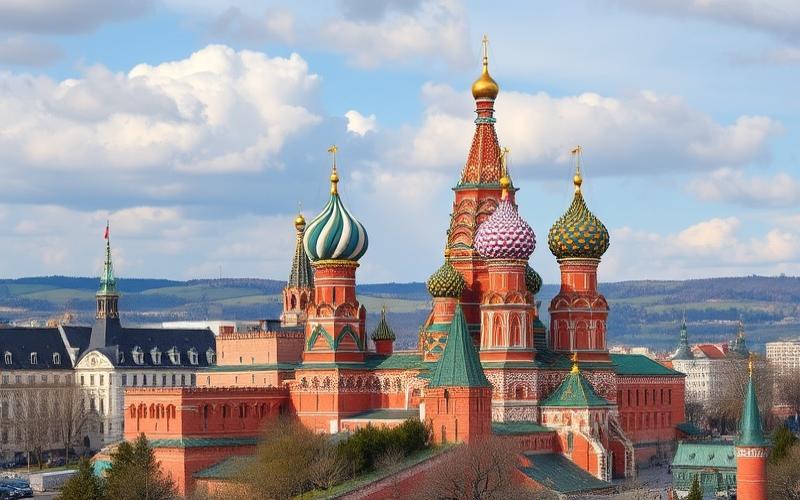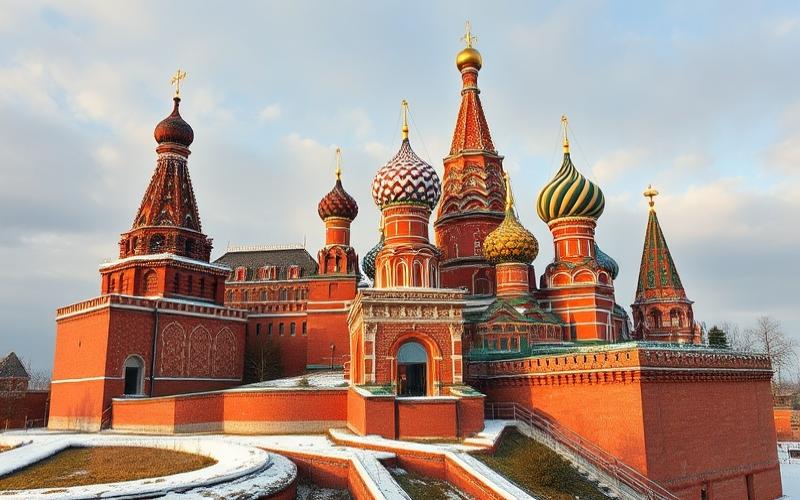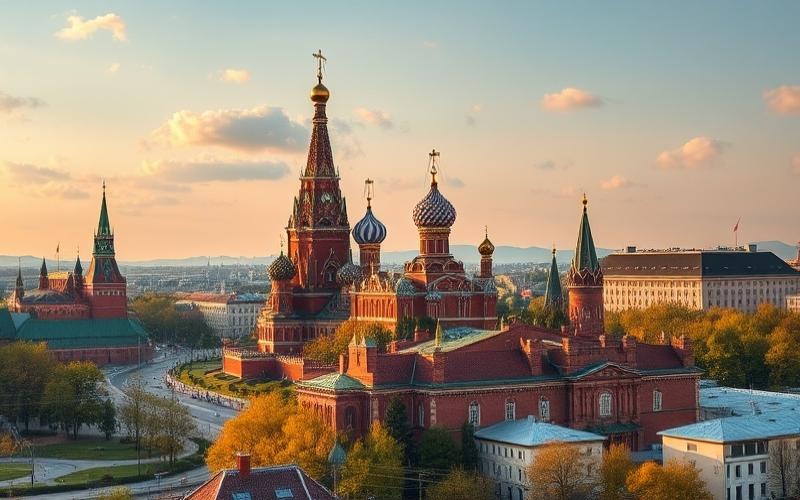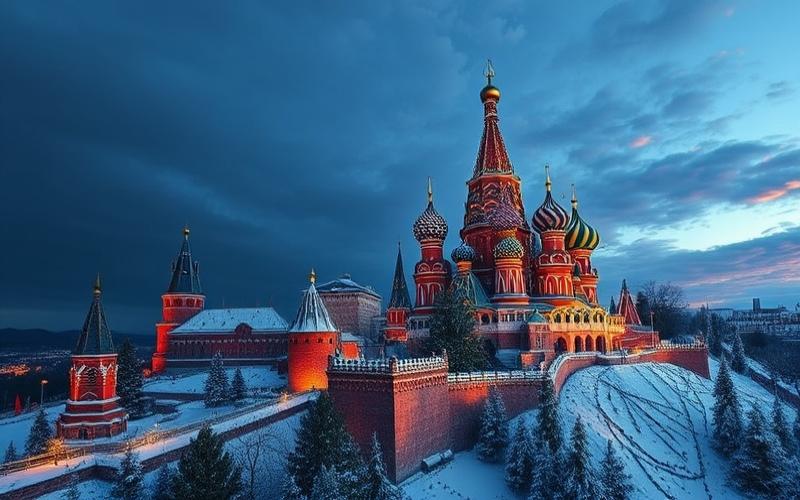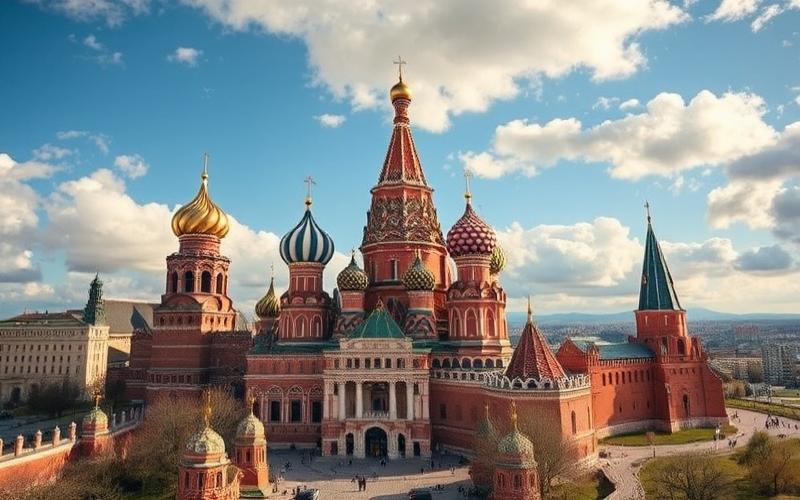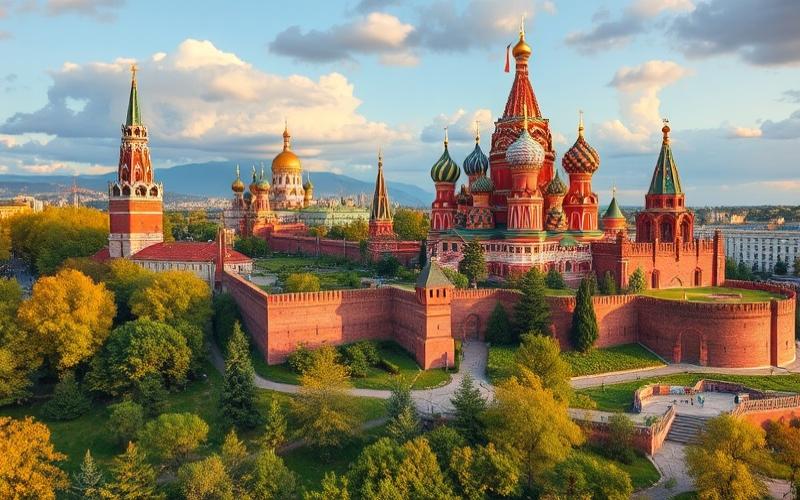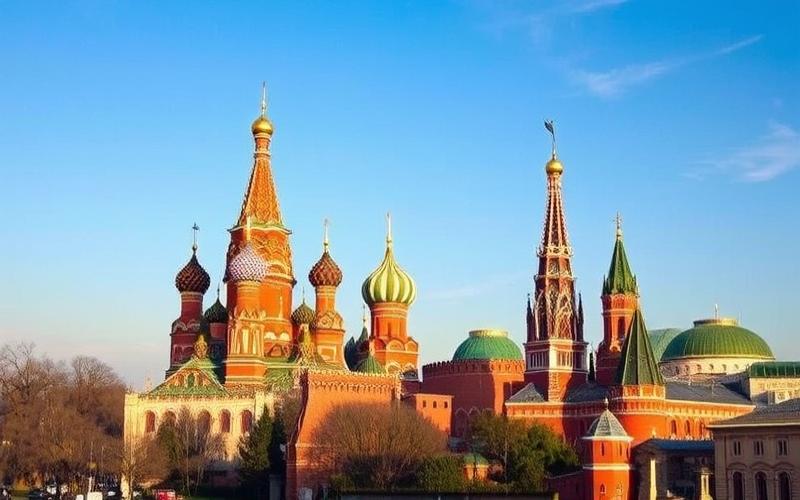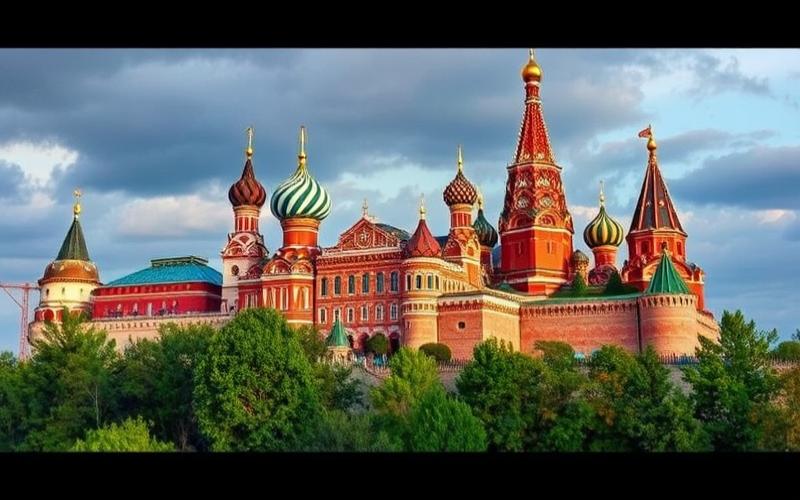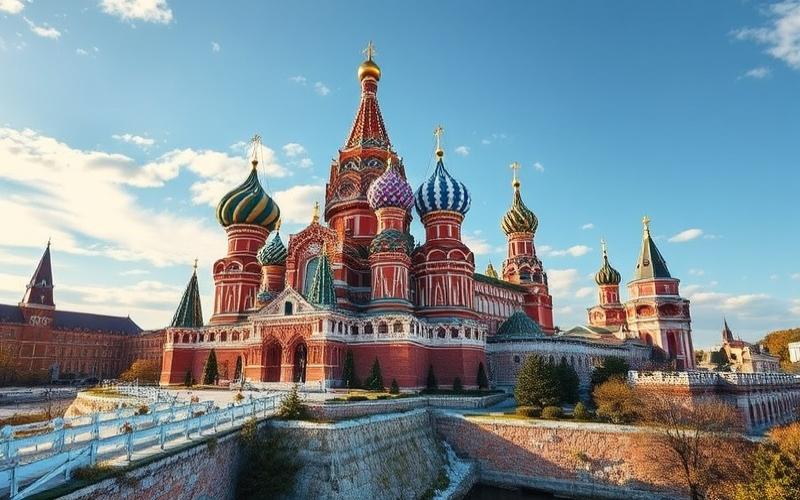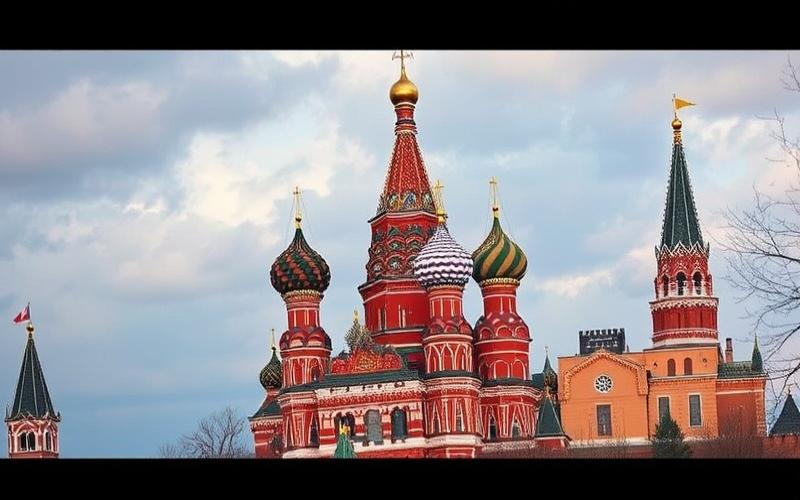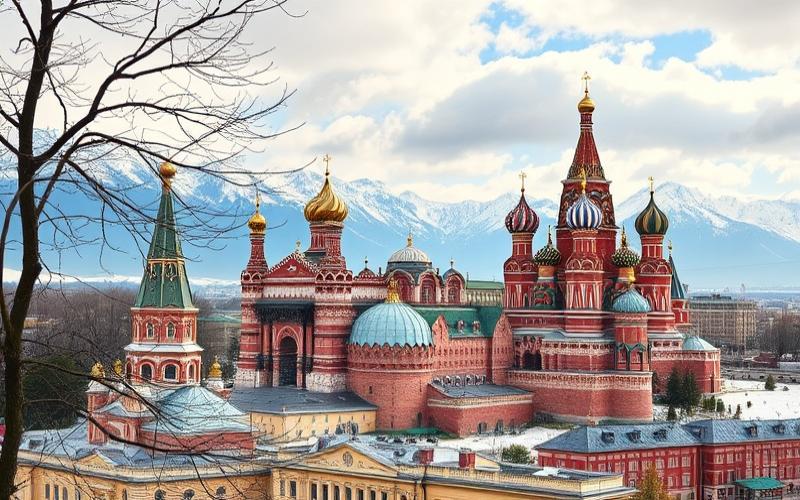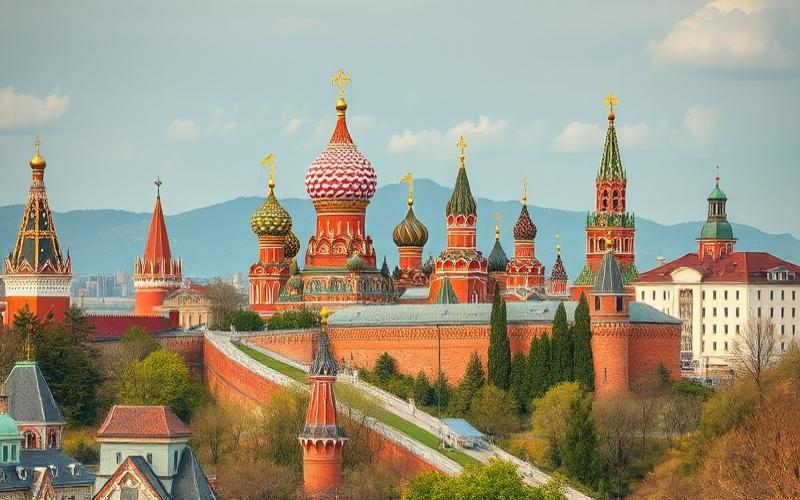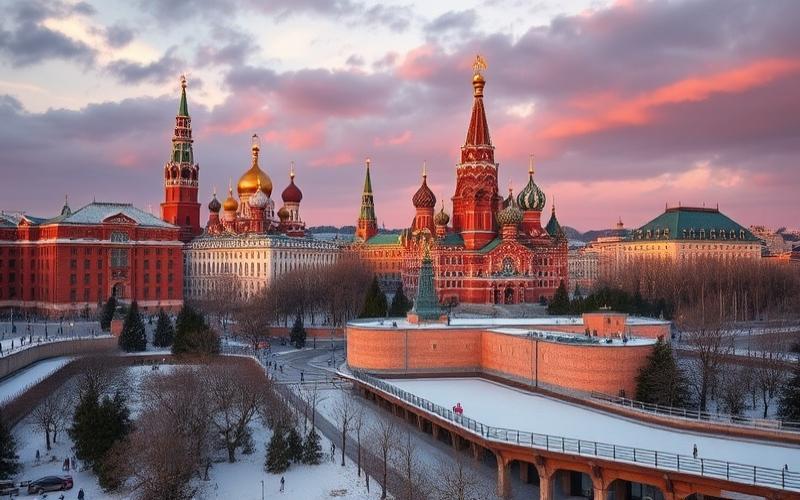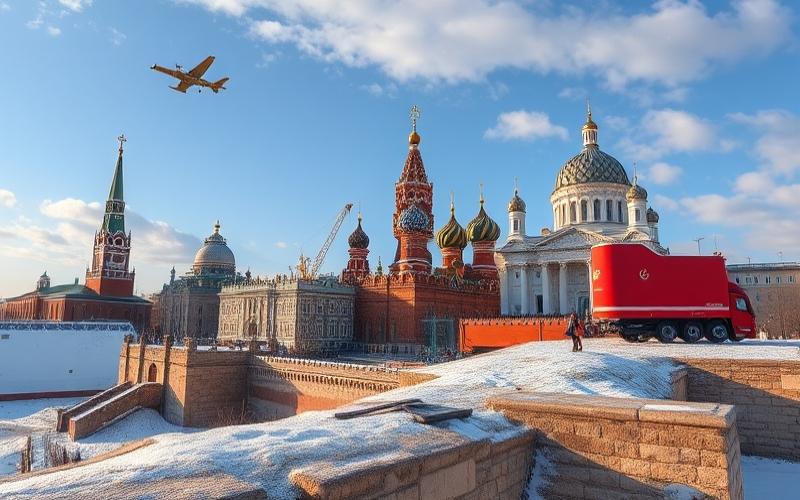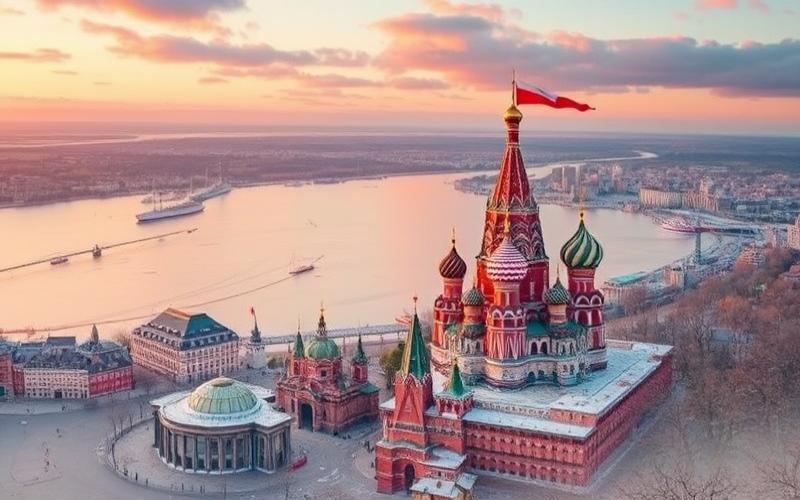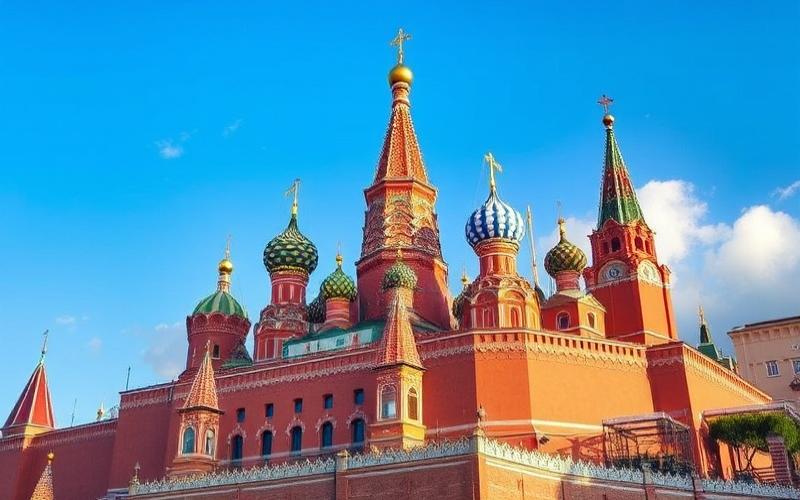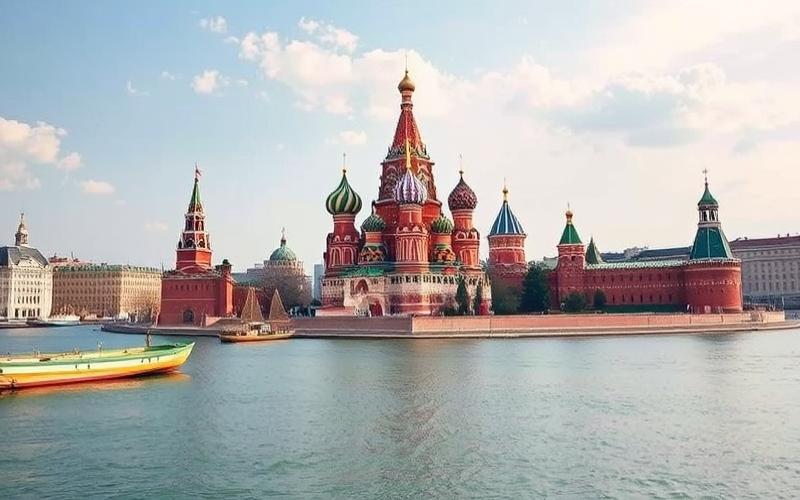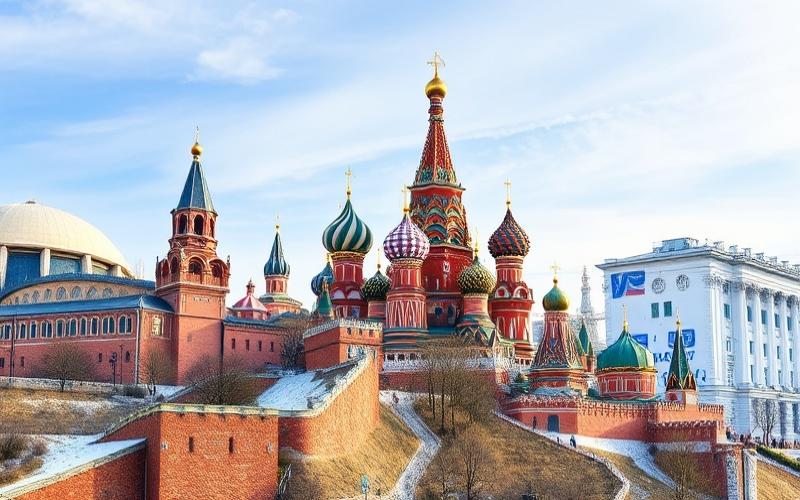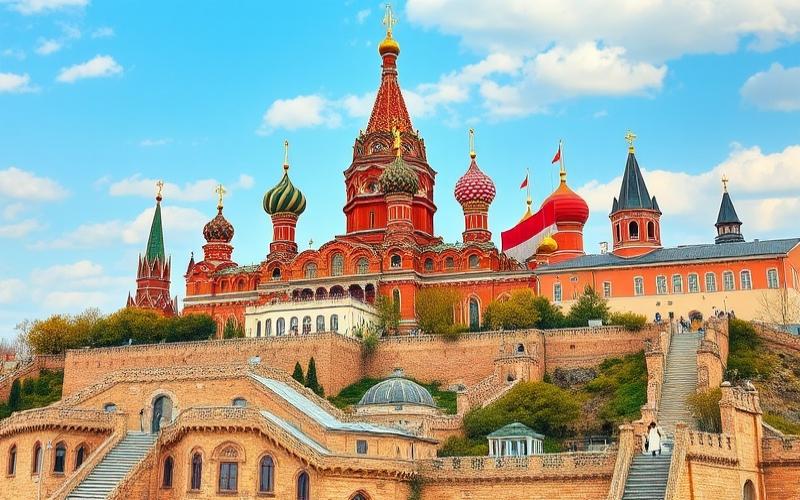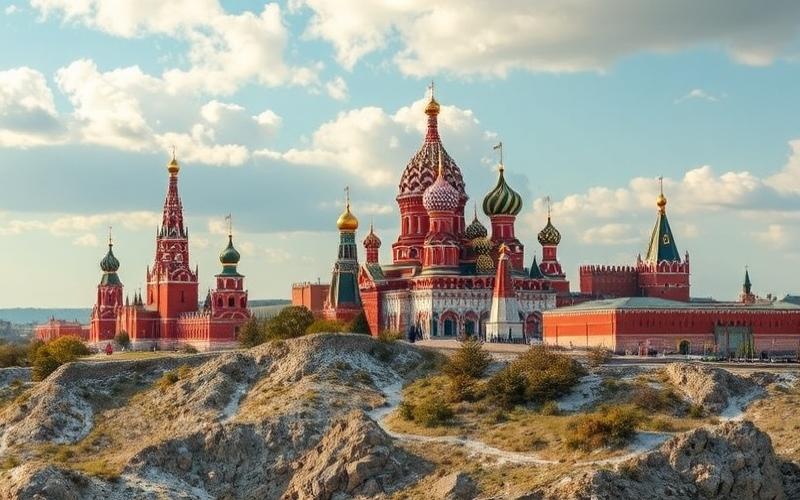
 Published on and written by Cyril Jarnias
Published on and written by Cyril Jarnias
Navigating the complex waters of international financial management requires a thorough understanding of banking services tailored to expatriates living in Russia. This country, with its rich economic heritage and geopolitical challenges, offers a unique environment where expatriates often must juggle global and local expectations.
Russian banks offer a variety of specific services, ranging from currency conversion to tailored savings accounts, to meet the needs of foreign residents. With a sophisticated yet sometimes confusing banking system, it’s essential to demystify these options to help expatriates optimize their wealth management and take advantage of opportunities in this vast market.
Choosing Suitable Banking Services for Expatriates in Russia
Common Financial Challenges for Expatriates in Russia
- Exchange rate fluctuations: Significant variations between the ruble and foreign currencies can impact living costs, money transfers, and savings value.
- International banking fees: International wire transfers and withdrawals from foreign accounts often incur high fees and extended processing times.
- Management in a foreign language: Banking interfaces and documentation are primarily in Russian, complicating daily account management for non-Russian speakers.
- Regulations and international sanctions: Expatriates may face restrictions, fund freezes, or increased scrutiny due to economic sanctions affecting Russia.
Key Criteria for Choosing a Bank in Russia
- Accessibility of online banking services: Prioritize banks offering intuitive mobile apps and comprehensive remote management.
- Multilingual assistance: Verify the availability of customer support in English or other relevant languages.
- Understanding local regulations: Research account opening requirements, applicable taxation, and transfer restrictions.
- Branch and ATM network: Assess the bank’s physical presence, especially outside major cities.
Examples of Banks Suitable for Expatriates in Russia
| Bank | Multi-currency Accounts | International Cards | English Support | Transfer Solutions |
|---|---|---|---|---|
| Raiffeisenbank | Yes | Visa/Mastercard | Yes | SEPA/SWIFT Transfers |
| Tinkoff Bank | Yes | Visa/Mastercard | Limited | Intuitive Application |
| Sberbank | No (primarily ruble) | Visa/Mastercard | Limited | Extensive National Network |
| Alfa-Bank | Yes | Visa/Mastercard | Yes | Fast Transfers |
- Some banks offer foreign currency accounts (USD, EUR), facilitating management of fluctuations and international transfers.
- International bank cards enable payments and withdrawals in many countries.
- Low-cost money transfer solutions are essential for sending/receiving funds outside Russia.
Securing Online Bank Accounts and Transactions
Importance: Fraud and hacking are on the rise; online account security is therefore paramount.
Recommended Measures
- Use two-factor authentication.
- Change passwords regularly.
- Never access accounts from unsecured public Wi-Fi.
- Verify official bank website and app addresses.
- Enable transaction notifications.
Practical Tips for Opening a Bank Account in Russia
Generally Required Documents
- Passport with valid visa or residence permit.
- Proof of Russian residence address (certificate or rental contract).
- Russian tax identification number (INN) sometimes required.
Common Procedures
- Physical presence typically required at a branch.
- Signing documents in Russian; it may be helpful to bring an interpreter.
Differences Compared to Other Countries
- Fewer 100% online opening options for foreigners.
- Variable bank card issuance time (immediate to 2 weeks).
- Enhanced scrutiny on fund origins.
Useful Resources and Associations
- Embassies and consulates: Administrative assistance and referrals to partner banks.
- Expatriate groups (Facebook, Telegram): Experience sharing and recommendations.
- Associations like the Union of French Abroad (UFE): Support, legal and financial advice.
- Financial advisors specializing in expatriation: Personalized guidance.
Case Studies and Statistics
According to a survey of 300 European expatriates in Moscow, 72% encountered difficulties when opening their account, primarily related to language and understanding procedures.
60% of surveyed expatriates recommend Raiffeisenbank and Alfa-Bank for ease of access to English services and multi-currency management.
A reported case of a French expatriate: account opening possible within 48 hours at Tinkoff, but limited English support and need for a translator to finalize the opening.
Key Takeaways
⚠️ Anticipation, document preparation, and choosing a suitable institution are key to smooth banking management for expatriates in Russia.
Good to Know:
When choosing a banking service in Russia, opt for banks offering multi-currency accounts and English assistance, like Sberbank or Raiffeisen Bank, while ensuring online security and carefully checking fees and exchange rates. Consider consulting expatriate associations for advice on best practices and available resources.
Mastering Exchange Rate Fluctuations and Optimizing International Transfers
The main mechanisms for monitoring the foreign exchange market in Russia include direct intervention by the Central Bank of Russia, which can buy or sell foreign currency to stabilize the ruble, especially during high volatility or major geopolitical events. The bank also uses its key rate and adjusts banking liquidity to influence exchange rates and maintain financial stability.
Among the available financial tools:
- Electronic systems for tracking ruble rates (banking platforms, licensed forex brokers).
- Regular reports published by the Central Bank on market status and its actions.
- Two-tier monitoring: centralized by the Central Bank and regional via “national banks.”
Tips for Anticipating and Managing Exchange Rate Fluctuations
- Closely monitor oil prices, a key factor influencing the ruble.
- Consider geopolitical developments (international sanctions, conflicts).
- Watch for official announcements regarding the key rate or any market intervention.
- Use stop-loss orders in forex trading to limit potential losses.
Russian Monetary Policies
| Instrument | Potential Impact on Exchange Rate |
|---|---|
| Key Rate | Increase = support for ruble; decrease = possible depreciation |
| FX Interventions | Buying/selling foreign currency immediately affects supply/demand |
| Capital Controls | Limits massive outflows/inflows that could strongly impact value |
Specific Examples of Banking Services Tailored to Expatriates in Russia
- Multi-currency accounts offered by Sberbank or VTB enabling easy, low-cost international transfers.
- Fintech solutions like Tinkoff Bank facilitating quick account opening with secure mobile management.
- SWIFT services in all major Russian banks; possibility to use SEPA for certain partner European countries.
Precautions to Avoid Hidden Fees in International Transfers
- Systematically compare offers between local banks and specialized platforms (Wise, Revolut).
- Check all additional fees: fixed/variable commissions, margins on interbank rates.
- Prefer direct transfers in the target currency when possible to avoid costly double conversion.
- Inquire with customer service before each significant operation.
Common Strategies Used by Expatriates Facing Volatility
- Geographic diversification: keep part of funds in different stable currencies (euro, US dollar).
- Regular use of limit/stop orders on Forex platforms to protect against a sharp ruble drop.
- Subscription to structured banking products allowing automatic hedging against major fluctuations.
- Seeking specialized advice from a local or international financial advisor familiar with the Russian context.
To optimize your international transfers to/from Russia, it’s recommended to use an independent comparator before each significant operation. Always prioritize total transparency on all associated costs—this remains your best protection against any unpleasant surprises.
Good to Know:
In Russia, using real-time exchange rate tracking platforms and hedging products like futures contracts can help better anticipate fluctuations, while banks like Sberbank offer international transfer services with transparent and secure fees. To avoid hidden fees, it’s advisable to compare transfer offers and research Russian monetary policies that directly influence returns on currency investments.
Planning Financial Security and Managing Wealth in a Multicultural Context
Understanding Russia’s cultural and legal nuances is essential for effective wealth management, as legislative and tax differences can affect the protection, growth, and transfer of expatriates’ assets.
Main Differences in Tax Legislation Between Russia and Home Country
- Russian tax residents are taxed on their worldwide income according to local rules, whereas some home countries (like France) maintain taxation on certain income even after expatriation.
- French dividends received in Russia remain subject to withholding tax in France (12.8%), but are also taxed in Russia.
- French capital gains are not taxable in France for Russian residents, but become taxable in the country of residence.
- Real estate located in the home country may remain subject to wealth tax or IFI if its value exceeds a certain threshold.
Comparative Example
| Income Type | Taxation in Russia | Taxation in Home Country |
|---|---|---|
| Foreign Dividends | Yes | Possible Withholding at Source |
| Capital Gains | Yes | No (if non-resident) |
| French Real Estate Income | No | Yes |
| ISF/IFI on French Assets | No | Yes (> threshold) |
Influence on Financial Security Planning
It’s essential to anticipate these tax differences when choosing investments or transferring assets to avoid double taxation or incomplete declarations that could lead to penalties.
Management must include a precise asset assessment before any departure and be adjusted according to regulatory changes.
Collaboration with Local Financial Advisors
Surrounding yourself with professionals mastering the Russian context allows:
- Correct interpretation of often complex local laws.
- Adaptation of your strategy to frequent changes in the Russian regulatory framework.
- Benefit from solutions tailored to the local market to optimize taxation and asset protection.
Strategies for International Diversification
Geographically diversifying investments limits exposure to political or economic risks specific to a single state.
Consider:
- The ruble’s volatility against major international currencies.
- Government restrictions that could affect repatriation or international fund transfers.
Essential Points for Investing Effectively from Russia
- Select different types of assets: local/international real estate, securities listed outside Russia
- Use multi-currency accounts
- Regularly monitor ruble/euro/dollar exchange rates
- Adjust portfolio according to local political developments
Importance of Estate Planning & Insurance
In a multicultural environment, anticipate:
- Cross-application of Russian inheritance law versus that of the home country (different rules regarding compulsory heirs).
- Subscribing to international life insurance policies adapted to resident/non-resident status allowing secure cross-border transmission without administrative blockage.
Concrete Examples – Challenges Faced by Financial Expatriates in Russia
Restrictions on International Bank Transfers
- Annual limits set by Russian banks; enhanced controls potentially blocking certain operations to EU/USA
Limited Access to Digital Banking Services
- Some Western platforms refuse account opening/receipt of transfers from Russian banks
Increased Monetary Volatility
- Possible rapid depreciation; direct impact on real value of locally held assets
Practical Solutions to Challenges
- Use banks with international subsidiaries
- Implement automated systems for tracking multi-currency portfolio value
- Include specific cross-border succession clauses in wills & life insurance contracts
Good to Know:
Understanding tax differences between Russia and your home country is crucial to avoid double taxation; collaborate with local financial advisors to effectively navigate the Russian regulatory landscape and diversify your investments considering ruble fluctuations. Ensure your estate planning is adapted to Russian laws, accounting for challenges such as restrictions on money transfers or limited access to digital banking services.
Legal Precautions and Banking Framework for Expatriates in Russia
Overview of Main Regulations for Opening Bank Accounts by Expatriates in Russia
To open a bank account in Russia, expatriates generally must provide:
- Valid passport (with visa if necessary)
- Migration card issued upon arrival in Russia
- Temporary or permanent residence permit (depending on planned stay duration)
- Proof of local address (rental contract, accommodation certificate)
- Russian tax identification number (INN), essential for any regular fiscal or financial activity
| Required Document | Detail or Remark |
|---|---|
| Passport | Original + copy, with visa if applicable |
| Migration Card | Provided upon entry into Russian territory |
| Residence Permit | Temporary or permanent depending on status |
| Proof of Address | Rental contract or accommodation certificate |
| INN (Russian tax number) | To request from the federal tax service |
Russian Laws Protecting Banks and Consumers
- Federal Law No. 115-FZ “On Combating Money Laundering and Terrorism Financing” imposes due diligence, reporting, and client identity verification obligations on banks.
- Federal Law No. 395-1 “On Banks and Banking Activity” regulates institution operations, sets client rights and obligations, and protects deposits.
- The Central Bank of Russia (CBR) supervises banking sector stability, compliance with prudential standards, and consumer protection.
Tax Declaration Requirements for Expatriates
- Any expatriate working or earning income in Russia must obtain an INN number to identify themselves to the tax authorities.
- Russian tax residents (presence >183 days/year) declare all their worldwide income. Tax rate: 13% up to 5 million rubles, 15% above.
- Non-residents are taxed only on their Russian-source income, at a flat rate of 30%.
- Annual declaration to be filed by April 30 of the following year.
- International tax treaties (notably between France and Russia) allow avoidance of double taxation.
Restrictions for Foreigners Regarding Investments and Transactions
- Foreign nationals can open accounts in rubles and foreign currencies, but some banks may limit access to certain investment products (Russian stocks, government bonds, etc.) based on nationality or residence status.
- Certain investment activities (especially in strategic sectors or controlled assets) may be restricted or require specific authorizations.
- Fund transfers abroad may be subject to declaration or caps, depending on current capital control policies.
Banking Options Available to Expatriates
| Account Type | Main Characteristics |
|---|---|
| Current Account (ruble) | Daily operations, withdrawals, payments |
| Foreign Currency Account | USD, EUR, other foreign currencies depending on bank |
| Savings Account | Interest rate, variable cap, limited withdrawals |
| Joint Account | Possible with co-owner, under conditions |
- Digital banking services: most major Russian banks offer online account management or via mobile app, enabling transfers, bill payments, currency conversion, and balance checking.
- Multilingual services: branches of major international banks and some Russian banks in Moscow or St. Petersburg offer assistance in English, sometimes in French or German; online interface is generally available in English.
- Research local legislation and banking practices before account opening.
- Prepare all necessary documents in advance, checking their validity and possible translation.
- Prioritize large banks recognized for stability and experience with international clients.
- Use services of a tax advisor or specialized lawyer to anticipate tax obligations and optimize international wealth management.
- Refer to chambers of commerce (French, German, etc.), expatriate associations, or consular services for reliable provider recommendations.
Resources and Professional Assistance for Expatriates
- International tax consulting services (KPMG, PwC, EY, Deloitte)
- Russian Federal Tax Service portal (partially available in English)
- Advisors at international banks established in Russia (Raiffeisenbank, UniCredit, Société Générale via Rosbank)
- Specialized expatriate forums and groups on Russia (InterNations, Expat.com)
- Bilateral chambers of commerce and industry (CCIFR, AHK, etc.)
To secure your procedures, it’s advisable to seek professional support upon installation and conduct regular monitoring of regulatory developments.
Good to Know:
Expatriates in Russia must provide a passport and proof of residence to open a bank account, while complying with local tax declaration obligations; to navigate investment restrictions, consider assistance from a specialized financial advisor.
Disclaimer: The information provided on this website is for informational purposes only and does not constitute financial, legal, or professional advice. We encourage you to consult qualified experts before making any investment, real estate, or expatriation decisions. Although we strive to maintain up-to-date and accurate information, we do not guarantee the completeness, accuracy, or timeliness of the proposed content. As investment and expatriation involve risks, we disclaim any liability for potential losses or damages arising from the use of this site. Your use of this site confirms your acceptance of these terms and your understanding of the associated risks.

